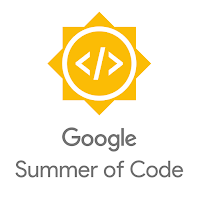This year Google brought over 320 mentors from all over the world (33 countries!) to Google's offices in Sunnyvale, California for the 2017
Google Summer of Code Mentor Summit. This year
149 organizations were represented, which provided the perfect opportunity to meet like-minded open source enthusiasts and discuss ways to make open source better and more sustainable.
The Mentor Summit is run as an
unconference in which attendees create and join sessions based on their interests. “I liked the unconference sessions, that they were casual and discussion based and I got a lot out of them. It was the place I connected with the most people,” said Cassie Tarakajian, attending on behalf of the
Processing Foundation.
Attendees quickly filled the schedule boards with interesting sessions. One theme in this year’s session schedule was the challenging topic of failing students. Derk Ruitenbeek, part of the
phpBB contingent, had this to say:
“This year our organisation had a high failure rate of 3 out of 5 accepted students. During the Mentor Summit I attended multiple sessions about failing students and rating proposals and got a lot [of] useful tips. Talking with other mentors about this really helped me find ways to improve student selection for our organisation next time.”
This year was the largest Mentor Summit ever – with the exception of our 10 Year Reunion in 2014 – and had the best gender diversity yet. Katarina Behrens, a mentor who worked with
LibreOffice, observed:
“I was pleased to see many more women at the summit than last time I participated. I'm also beyond happy that now not only women themselves, but also men engage in increasing (not only gender) diversity of their projects and teams.”
We've held the Mentor Summit for the past 10+ years as a way to meet some of the thousands of mentors whose generous work for the students makes the program successful, and to give some of them and the projects they represent a chance to meet. This year was their first Mentor Summit for 52% of the attendees, giving us a lot of fresh perspectives to learn from!
We love hosting the Mentor Summit and attendees enjoy it, as well, especially the opportunity to meet each other. In fact, some attendees met in person for the first time at the Mentor Summit after years of collaborating remotely! According to Aveek Basu, who mentored for
The Linux Foundation, the event was an excellent opportunity for
“networking with like minded people from different communities. Also it was nice to know about people working in different fields from bioinformatics to robotics, and not only hard core computer science.” You can browse the
event website and read through some of the
session notes that attendees took to learn a bit more about this year’s Mentor Summit.
Now that Google Summer of Code 2017 and the Mentor Summit have come to a close, our team is busy gearing up for the 2018 program. We hope to see you then!
By Maria Webb, Google Open Source 










